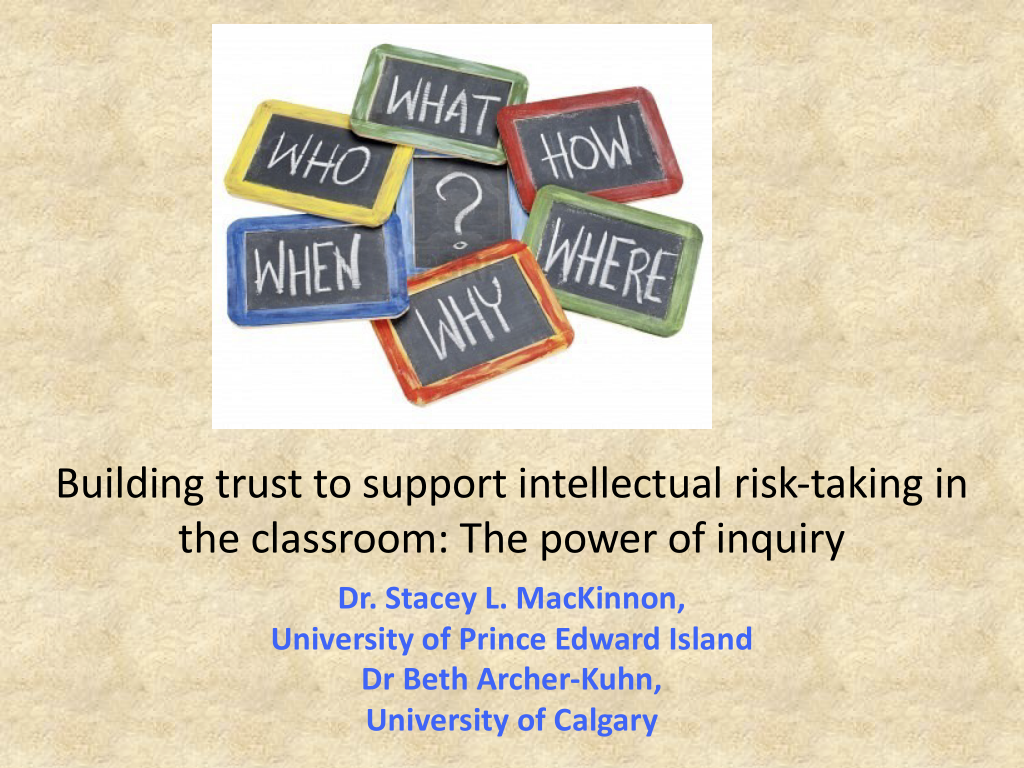Our research on developing and maintaining trust in inquiry-based learning is continuing and we are proud to announce the first publication stemming from those focus groups and interviews!
Archer-Kuhn, B. & MacKinnon, S.L. (2020). Developing Trust in Students, Professors and the Process within Short-term Higher Education Inquiry-based Learning Environments. Journal of Education and Training Studies, 8(9), 1-14. DOI:10.11114/jets.v8i9.4929
This qualitative constructivist grounded theory study of trust within inquiry-based learning in higher education (IBL-HE) environments examined the experiences of instructors and students through four focus groups and nine individual interviews. As the study purpose is to understand the development and maintenance of trust in IBL-HE classrooms, participants are experienced instructors, learners, and authors of IBL-HE from Canada, USA, New Zealand, and Ireland. We used face-to-face sessions and zoom sessions to facilitate the focus group experience, and telephone for the individual interviews to explore the following two research questions: (1) what does trust mean in a higher education IBL (IBL-HE) classroom; and, (2) how do those involved create and maintain it? Our findings are revealed through our Pedagogy of Trust in IBL-HE using 3 themes: (1) Creating an environment of negotiated mutuality; (2) Emerging relationship/community building; and, (3) Internalizing and applying a mindset shift. Each of these stages involved a different trust relationship: (1) Professor-Student; (2) Student-Student; and, (3) Student-Self. These findings provide evidence for IBL as a pedagogy of trust in higher education, and reinforce the need for the Scholarship of Teaching and Learning (SoTL), and the lifelong learning skills desired by contemporary employers.



